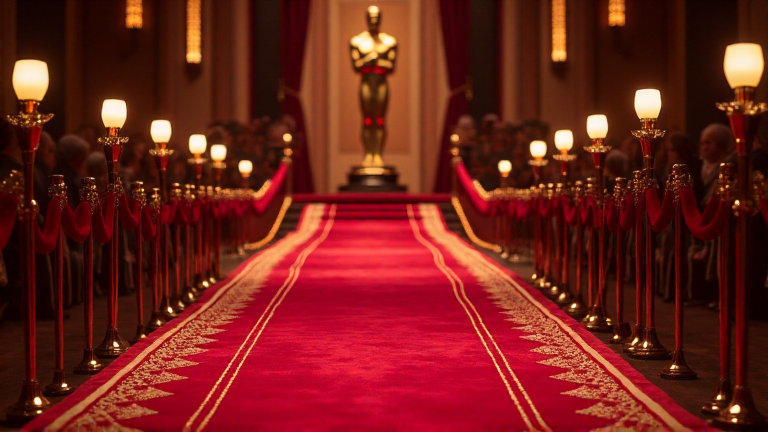
Oscars 2025: Unpacking The Brutalist’s Innovative AI Journey
The Oscars have always been synonymous with glamour, surprises, and groundbreaking moments. In the 2025 ceremony, while many stars dazzled on the red carpet and honored their craft, one film sparked a vibrant debate in the industry: The Brutalist.
Despite its 10 nominations and anticipated wins, director Brady Corbet's film only took home three awards—Best Actor, Best Cinematography, and Best Film Score. A significant part of the conversation post-ceremony has been about the film’s subtle yet contentious use of generative artificial intelligence (AI).
Blending AI with Artistic Vision
In interviews with industry insiders, particularly with Redshark News, Dávid Jancsó, the film’s main editor, shared intriguing details on how AI was woven into the movie’s fabric:
- AI-Driven Accents:
- To lend authenticity to the Hungarian dialogue, the team collaborated with a Ukrainian software firm, Respeecher. This company specializes in altering voices using AI technologies.
-
Notably, although actors Felicity Jones and Adrien Brody performed mostly in English with accented inflections, specific Hungarian scenes received careful AI-assisted editing. Jancsó mentioned in his interview, "Most of their Hungarian dialogue has a part of me talking in there," underscoring how the native touch was interlaced with digital enhancements.
-
Digital Blueprint Rendering:
- In a creative twist, AI was also employed to partially generate the blueprints and building designs credited to the fictional architect László Tóth. This decision, driven by budget constraints under $10 million, streamlined post-production, albeit not without criticism. Critics argued that, compared to films untouched by AI, these alterations diminished the film’s artistic integrity.
Director’s Clarifications and the Broader Debate
In response to the mounting concerns, director Brady Corbet released a comprehensive statement outlining the production process:
- Accurate Accents:
-
Corbet pointed out that both lead actors collaborated with a dialect coach for months to perfect the Hungarian accent. The selective use of Respeecher’s AI aimed only to refine crucial segments, ensuring authenticity wasn’t compromised.
-
Artistic Choices in Visuals:
- Production designer Judy Becker and her team balanced the AI enhancements by also creating hand-drawn elements, particularly for background shots intended to evoke an authentic 1980s aesthetic.
Furthermore, The Brutalist is part of a broader trend where technological integration in filmmaking is becoming a hot topic. While some creators advocate for AI’s assistive role in perfecting minute details, others assert that even minimal digital intervention could undermine the “raw” cinematic experience.
Looking Ahead: AI’s Role in Hollywood
The debate over AI-assisted filmmaking is still in its early stages. As studios experiment more with integrating AI into creative processes, ethical and artistic questions continue to surface. The future of AI in film may look promising in terms of efficiency and cost-effectiveness, but its impact on traditional craftsmanship remains a subject of intense discussion.
With the Oscars 2025 as a backdrop, The Brutalist stands as a prime example of technology challenging long-held norms in the film industry—sparking conversations that will shape the future of cinematic art.
Oscars, technology, and artistic integrity have collided at the 2025 awards, pushing Hollywood to rethink what it means to make truly authentic cinema in the digital age.
Note: This publication was rewritten using AI. The content was based on the original source linked above.